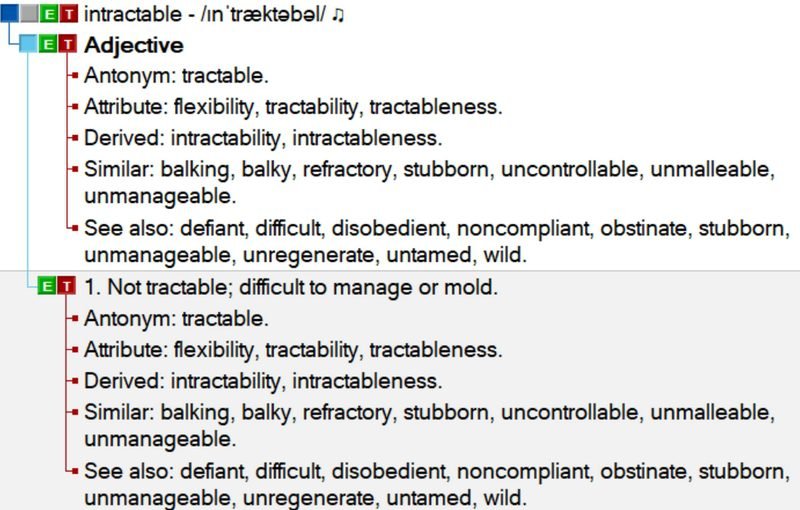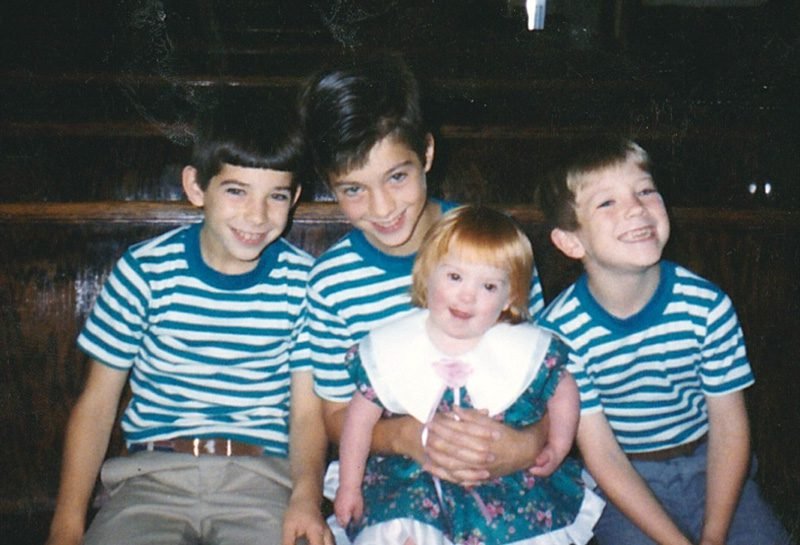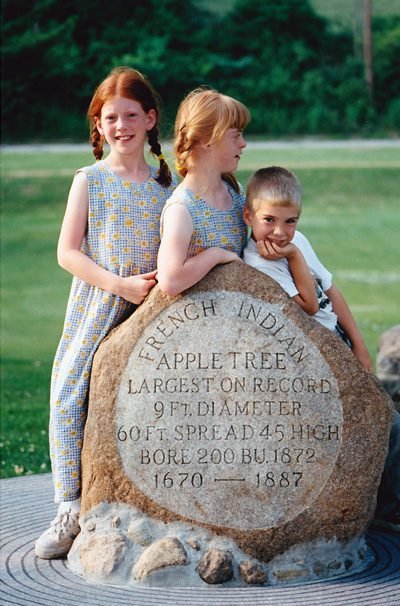
A reader recently asked:
Mr Gerencser,
I have a question not to be offensive either.
if one of your children or grandchildren accepted Christ and were called to preach what would you say ? how would you react?
In December 2008, my partner, Polly, and I asked our children and their spouses to come over so we could talk to them about some significant changes that were taking place in our lives. Until this time, Polly and I had been devout Christians, having spent twenty-five years pastoring churches. Our children had traveled from church to church with us, having heard every one of the 4,000+ sermons I preached. Our three older sons, in particular, had been deeply immersed in their father’s ministerial work, spending countless hours attending church services and doing everything from construction work to cleaning buildings to cutting wood to fuel furnaces. They were their father’s gophers, rarely far from his side as work was done on church buildings and outdoor property. Such is the life of preacher’s kids.
Our children knew that Mom and Dad were going through some changes in their lives. I had left the ministry in 2005. In 2004, I pastored my last church, a Southern Baptist congregation in Clare, Michigan. Polly and I had spent the ensuing four years moving from Arizona to Michigan to five communities in Ohio (Stryker, Newark, Bryan, Alvordton, and Ney), seeking a place and church to call home. I call these our “wandering years.” As our political and religious beliefs moved markedly leftward, our social beliefs began to change too. “Sins” I once preached against and for which the children were once punished, were no longer sins; or at the very least, they were no longer behaviors we paid attention to.
Polly and I had spent months talking about our religious beliefs, experiences, and practices. We read numerous books that challenged our theological beliefs, leaving us with many doubts and questions. Eventually, we concluded that we no longer believed that the central claims of Christianity were true. While this process was agonizingly painful, we knew we were on the right path. This path eventually led to us deciding that we were no longer Christians, in the classic meaning of the word. On the last Sunday in November 2008, we attended a service at the Ney United Methodist Church. When we walked out of the church doors for the last time, we knew our lives would never be the same. It would be almost sixteen years before we would attend church again — April 7, 2024, to hear our United Church of Christ pastor friend preach his last sermon before retirement.
We gathered our children and their spouses together to let them know that we were no longer Christians; and that we would no longer attend church. I made it clear to them that I was no longer the patriarch of the family; that I would no longer dictate to them what they should or shouldn’t believe; that they were free to believe whatever they wanted. Polly and I wanted them to know that they were free to make their own decisions; to come to their own conclusions about God and Christianity.
Our children said very little. I suspect they were shocked by what we told them, having only known their parents as a pastor and a preacher’s wife. I was, for the most part, the only pastor they ever had. Our children, by this time, were 29, 27, 24, 18, 16, and 14. Our oldest sons were married/divorced, while the three youngest were still homeschooled and lived at home. Today, none of our children attend an Evangelical church. One of our sons and his family attend a Catholic church, and another son flirts with church from time to time. The other four do not attend church and would not identify as Christians.
In one generation, the Evangelical curse has been broken. For that, Polly and I are grateful. If any of our children want to attend church or self-identify as a Christian, we are fine with it. But, what if they attended an Evangelical church? Their choice, end of discussion. I would say the same regardless of what religious beliefs they had.
Most people who get saved and are called to preach were raised in Evangelical churches. Their salvation and call are predicated on years and decades of indoctrination and conditioning. Polly and I have sixteen grandchildren, ages four to twenty-three. Outside of our Catholic grandchildren, none of them attends church. Without exposure to Evangelical indoctrination and conditioning, it is highly unlikely any of them will get saved or called to preach. Such things are foreign to them. Saved from what? Who would want to be a preacher? Besides, thirteen of our grandchildren are girls, so they are not permitted to be preachers (though they sure do a hell of a lot of preaching). 🙂
My grandchildren know nothing of Pastor Bruce Gerencser. To them, I am a Grandpa, a disabled old man who loves them, jokes with them, harasses them, annoys them with philosophical questions, buys them books about religion and science, and supports them in all of their endeavors. Polly is Nana, a woman who indulges them when they say “I am hungry” or need help with a recipe or sewing project. We see our grandchildren regularly, and, by all accounts, are close to them. I have had countless discussions about science, religion, and philosophy with my older grandchildren. They know they can ask me anything, as long as they understand that I will answer them and they might not like what they hear. They also know that Grandpa is an expert when it comes to discussions about the Bible and Christianity, so if they want to discuss such things they better be prepared for a serious discussion. That said, if one of my grandchildren decides to become a Christian or enter the ministry, I would respect their wishes and support them. I would do my darnedest to steer them towards kinder, gentler forms of Christian faith, but at the end of the day, I am going to love and support them as they are.
Today, we watched the eclipse at my oldest son’s home in Defiance. We had a delightful time as we watched such an amazing solar event. My oldest grandson, who is almost sixteen, is a non-Christian. He is a science geek. He plans to take advanced physics and chemistry this fall. He is a voracious reader, devouring science fiction and non-fiction alike. He is quite the skeptic, showing no tolerance for woo or conspiracy theories. It would not surprise me if he became a world-renowned scientist someday — or a professional chess player. 🙂
My grandson and I, along with his father, talked about all sorts of things science- and religion-related. I am pleased with how well both of them have a grasp on science — much farther ahead than I was at their respective ages. Knowing that skepticism, secularism, and science are antidotes to the Evangelical virus, it is unlikely that either of them would get saved or become a preacher. I am confident that I can say the same thing for the rest of my grandchildren. And if I am wrong, and one of them professes faith in Jesus and becomes a preacher? I will respect them for who and what they are, The choice, as always, is theirs. Unlike the way Evangelicals treated me and Polly when we deconverted, we will never abandon our grandchildren or distance ourselves from them. One of them getting saved might be a phase he or she is going through, so we wouldn’t want to do anything to harm our relationship, knowing that, in time, they might come to see that Christianity is not what it claims to be. That said, I am not naive. If one of our grandchildren got saved in an Independent Fundamentalist Baptist (IFB) church and became an IFB preacher, that could cause problems depending on whether they pushed their beliefs as such believers often do. And if that happened? I would tell them, “Each to their own. As a family, we respect each other’s religious beliefs and don’t try to evangelize each other or demand that everyone live by one set of beliefs.”
Bruce Gerencser, 68, lives in rural Northwest Ohio with his wife of 47 years. He and his wife have six grown children and sixteen grandchildren. Bruce pastored Evangelical churches for twenty-five years in Ohio, Texas, and Michigan. Bruce left the ministry in 2005, and in 2008 he left Christianity. Bruce is now a humanist and an atheist.
Your comments are welcome and appreciated. All first-time comments are moderated. Please read the commenting rules before commenting.
You can email Bruce via the Contact Form.











